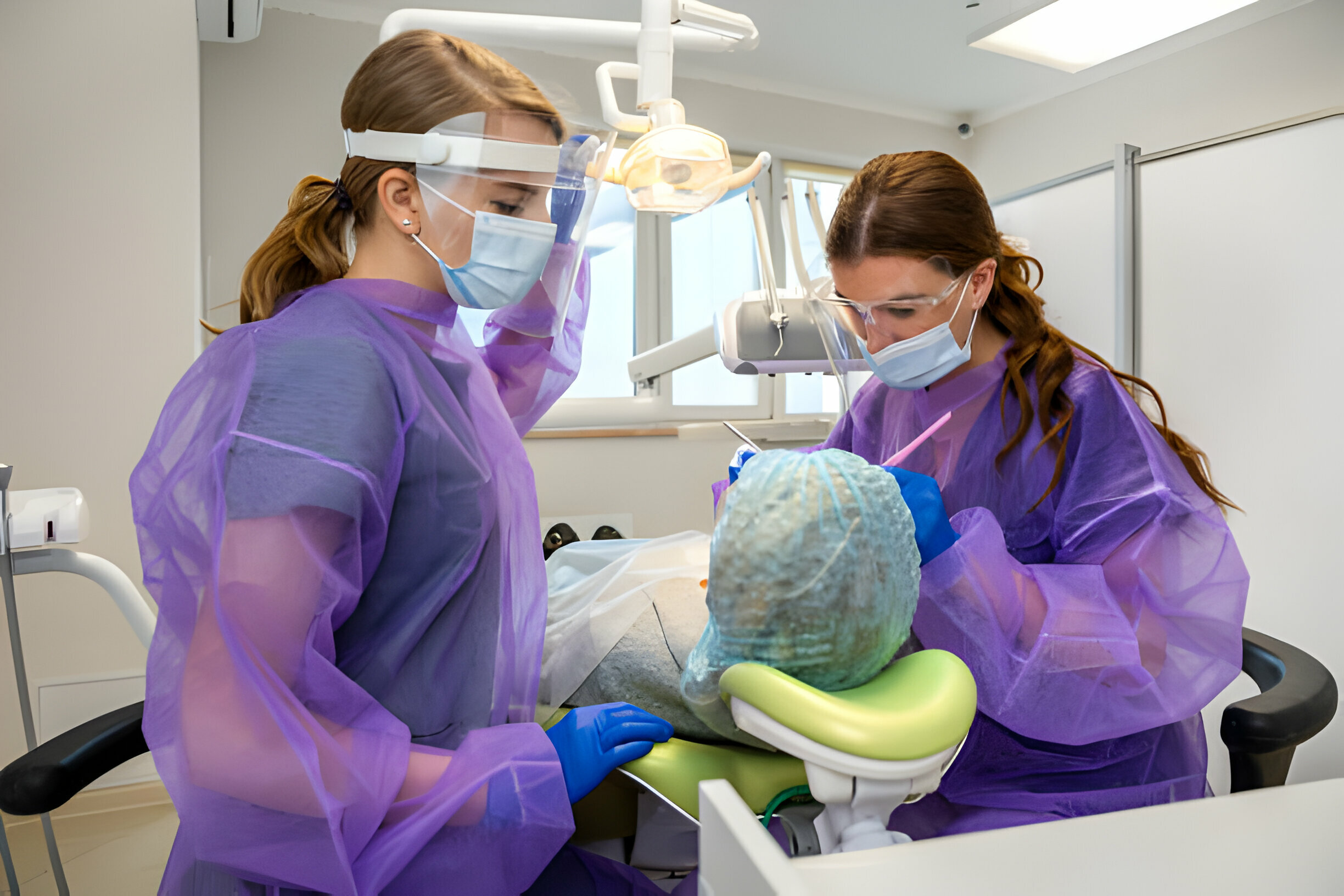Summary
Oral surgeons or Tupelo MS dentists manage intricate dental problems requiring surgical solutions. These procedures include treating impacted wisdom teeth, jaw misalignments, and facial trauma.

But before choosing the right oral surgeon, you need to be mindful of certain considerations. This article can give you insights on the following topics to help you make an informed choice:
- Suffering From Oral Health Issues? OMS Can Be Your Solution
- Tips To Choose The Right Surgeon
- What Services Can You Expect From A Surgeon?
- Essential Considerations For Individuals To Approach Surgery With Caution
Continue reading as we explore more about Tupelo oral surgeons in the following sections.
Suffering From Oral Health Issues? OMS Can Be Your Solution
Oral health issues are common in both children and adults. Stats suggest that 3.5 billion people worldwide suffer from various oral diseases, which can lead to other health issues and concerns.
Conditions like periodontal disease, tooth decay, and impacted wisdom teeth pose health challenges, and oral surgeons in Tupelo, MS, play a crucial role in resolving these issues through various surgical interventions.
But how can you choose the right expert to cure and relieve your conditions? Let’s find out!
Tips To Choose The Right Surgeon
Oral surgery is a specialized field within dentistry that addresses complex dental issues, necessitating careful selection of a qualified dentist. Selecting the right professional is crucial for a successful and comfortable experience. Here are some essential tips to guide you in making an informed decision when choosing a surgeon.
Credentials and Qualifications
Ensure that the surgeon you’re considering is qualified and licensed. Look for a practitioner who has completed the necessary education training and is board certified in oral and maxillofacial oral surgery, indicating adherence to specific standards of excellence.
Experience
Consider the surgeon’s experience, specifically in the procedure you require. An experienced surgeon is more likely to handle various cases effectively, increasing the likelihood of optimal outcomes.

Referrals and Reviews
Seek recommendations from your dentist, friends, or family who have undergone surgery. Personal referrals can provide insights into the surgeon’s communication skills and overall patient satisfaction. Online reviews and testimonials can also offer valuable perspectives.
Facility Accreditation
Ensure the OMS operates in an accredited facility meeting industry standards. Accreditation guarantees adherence to strict safety and hygiene protocols, providing a secure environment for your procedure.
Consultation And Communication
Schedule a consultation to discuss your needs and concerns. Evaluate the surgeon’s ability to communicate effectively, explain procedures clearly, and address your questions. A surgeon who takes the time to understand your expectations is likely to prioritize your well-being.
Emergency Care And Follow-up
Consider the OMS’s approach to emergency care and post-operative follow-up. A reliable surgeon should have contingency plans for unexpected complications and a clear protocol for post-dentist surgery, ensuring a smooth recovery.
What Services Can You Expect From A Surgeon?
Dentists, also known as OMS, are specialized dental professionals focusing on the diagnosis and surgical treatment of various conditions affecting the mouth, jaws, and facial structures. Their expertise covers a broad spectrum of oral and facial issues, and in this article, we’ll delve into the essential services one can expect from a surgeon.
- Tooth Extractions: A primary service oral surgeons provide involves tooth extraction. This can encompass the removal of impacted wisdom teeth, damaged or decayed teeth, and those causing orthodontic complications.
- Dental Implants: Dental surgeons are skilled in placing surgical and dental implants and artificial tooth roots to support prosthetic teeth. This procedure often replaces missing teeth, offering a natural-looking and functional solution.
- Jaw Surgery (Orthognathic Surgery): Oral surgeons address jaw misalignments and facial irregularities through orthognathic surgery. This procedure aims to enhance jaw function and appearance, correcting issues like overbites, underbites, and asymmetry.
- TMJ (Temporomandibular Joint) Disorders: Diagnosis and treatment of TMJ disorders fall within the purview of surgeons. Surgical interventions may be recommended for severe cases unresponsive to conservative treatments, alleviating pain and discomfort in the jaw joint and surrounding muscles.
- Treatment Of Facial Trauma: Oral surgeons are adept at treating facial injuries resulting from accidents, sports mishaps, or other trauma. They can expertly repair fractures, lacerations, and other injuries to restore function and aesthetics.
- Cleft Lip And Palate Repair: Oral surgeons specialize in correcting congenital conditions such as cleft lip and palate. Surgical interventions are crucial to improving both form and function, addressing issues that impact speech and eating.
- Biopsy And Removal Of Oral Lesions: OMS are proficient in conducting biopsies to diagnose oral lesions. When necessary, they can surgically remove tumors, cysts, or other abnormal growths in the mouth and jaw region.
- Treatment Of Sleep Apnea: Some dental surgery doctors collaborate with sleep specialists to address sleep apnea. Surgical options may involve procedures to reposition the jaw or remove excess tissue, alleviating breathing difficulties during sleep.
Essential Considerations For Individuals To Approach Surgery With Caution
Seeking oral or mouth surgery is a common necessity for various dental and facial procedures, encompassing a spectrum from tooth extractions to corrective jaw surgeries. Nevertheless, specific medical conditions require individuals to exercise caution or potentially avoid visiting surgeons. Here are some conditions that merit special attention:
Uncontrolled Medical Conditions
Individuals grappling with uncontrolled systemic conditions, such as diabetes, hypertension, or cardiovascular diseases, may require a thorough evaluation before undergoing surgery. Poorly managed medical conditions can heighten the risk of complications during and after the surgical procedure.
Blood Disorders
Patients with bleeding disorders, such as hemophilia or thrombocytopenia, may be more susceptible to excessive bleeding during surgery. Special precautions and consultation with an oral dentist may be necessary to ensure a safe surgical experience.

Immuno-compromised Individuals
Those with compromised immune systems, either due to medical conditions like HIV/AIDS or immunosuppressive medications, may face an elevated risk of infections after surgery. Close consultation with the patient’s primary healthcare provider is crucial to minimize the risk.
Pregnant Women
Pregnancy can influence the choice of medications and anesthesia during surgery. Additionally, certain elective procedures may be postponed until after childbirth to ensure the safety of both the mother and the developing fetus.
Recent Heart Attack Or Stroke
Patients who have experienced a recent heart attack or stroke may need to defer elective surgery until they have fully recovered and stabilized. Coordination with the patient’s cardiologist or neurologist is vital in such cases.
Takeaway
- Periodontal disease, tooth decay, and impacted wisdom teeth are all possible health complications.
- Surgeons use various surgical techniques to address and cure oral health concerns.
- They provide a variety of therapeutic procedures, including tooth extraction, dental implants, jaw surgery, and lesion excision.
- Individuals with medical issues, blood disorders, cardiovascular illnesses, or who are pregnant should exercise caution while seeing an OMS.
- Don’t let some confusion come in the way of your smile. Connect with our Main Street Family Dentistry professional surgeons to learn more about oral health today!
